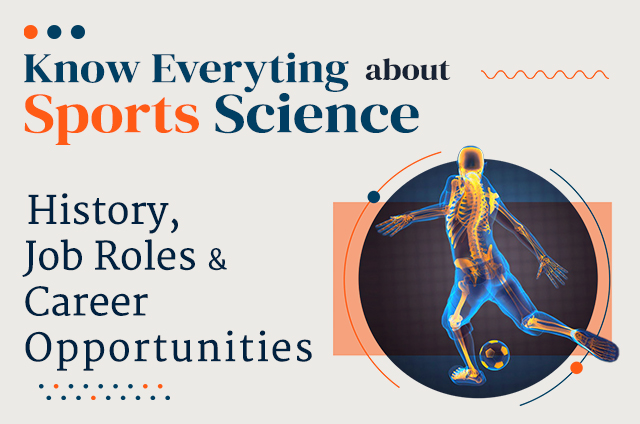Sports science is the study of scientific principles and techniques that can be applied to optimize athletes’ performance and improve their health. It is an interdisciplinary field that combines elements of biology, physiology, psychology, bio-mechanics and other scientific disciplines.
The insight and understanding of these disciplines put together can help in understanding the physiological, psychological, and biochemical factors that influence sports performance.
This was sports science in a nutshell. Now, let’s take a glance at the history of sports science.
History of sports science
Many believe that sports science is a new field that was recently brought to the limelight. But the truth of the matter is that historians have traced the origin of sports science back to Ancient Greece.
It was the Greek physician Galen, who wrote around 87 essays that focused on ways to strengthen the muscles and improve health and fitness. Since then, the world of sports science has come a long way. Most of the earlier findings were upgraded with breakthroughs and the new findings have helped athletes optimize their performance.
Now you might be wondering who are these professionals who have worked so hard to upgrade the earlier findings with newer ones? They are the ‘sports scientists and experts’ who better the lives of athletes.
Who is a sports scientist and what do they do?
Sports scientists are the professionals who work with athletes, coaches, and trainers to develop training programs, analyse performance data and design nutrition & recovery strategies that can help athletes to reach their full potential. They study the physical, psychological, and physiological factors that influence sports performance and use this knowledge to develop training programs and strategies to help athletes improve.
Some of the specific tasks that sports scientists do include:
- Researching topics such as nutrition, exercise physiology, and psychology to better understand how they impact sports performance.
- Working with coaches and athletes to develop training programs that are tailored to the needs of the individual or team.
- Monitoring and analysing athletes’ performance using various techniques, such as collecting data from GPS tracking systems or monitoring heart rate and other physiological measures.
- Using data analysis software to interpret data and identify trends or patterns relevant to sports performance.
- Providing feedback and recommendations to coaches and athletes based on their findings.
Overall, the work of a sport scientist involves using scientific knowledge and techniques to help optimize the performance of athletes and teams.
Now, let’s have a look at what are the career opportunities that an aspiring sports science student can pursue.
What are the career opportunities in sports science?
A career in sports science can be rewarding and exciting for those interested in applying scientific principles to optimize athletic performance. There are a variety of job opportunities available in sports science, including positions with professional sports teams, collegiate athletics programs and other sporting organizations.
To pursue a career in sports science, it is recommended to earn a Bachelor’s or a Master’s degree in Sports Science. And there is no better place for sports lovers to pursue their dream of joining the sports industry than International Institute of Sports & Management (IISM).
The Bachelor of Sports Science (BSS) program offered by IISM is the perfect amalgamation of classroom learning and practical experience. To get into BSS, you need to clear Sports Science Admission Test (SSAT). SSAT evaluates a candidate based on their understanding and liking of working in the sports industry.
The students studying BSS get hands-on experience at some of the reputed sports science centres. The internships and the live exposure the students get from IISM prove to be very valuable for gaining real-world experience in the field.
The learnings and real-life exposure to practical sessions will make them industry ready. They will then be responsible for developing training programs, analysing performance data, designing nutrition and recovery strategies and helping to prevent and treat sports-related injuries and conditions.
To succeed in the field of sports science, it is pivotal that you have strong analytical and problem-solving skills, as well as a strong understanding of scientific principles and techniques. Your communication skills should be at par, as you would be in direct contact with athletes, coaches, teams and other professionals. So if you have excellent communication skills you’ll be able to put across your thoughts in a much better and simplified way.
Where will a sports scientist work?
Sports science professionals may work with professional & amateur sports teams, and sporting organizations and will also be inclined towards academic and research settings. They may also work in sports medicine, helping to prevent and treat sports-related injuries and conditions.
Overall, sports science plays a crucial role in the success of athletes and sports organizations and helps to promote the physical and mental well-being of athletes.
















